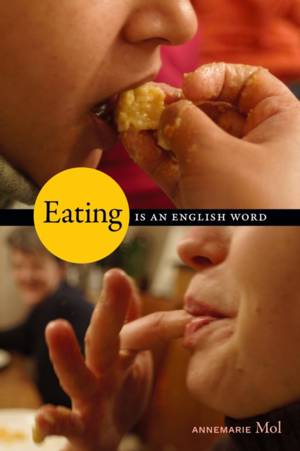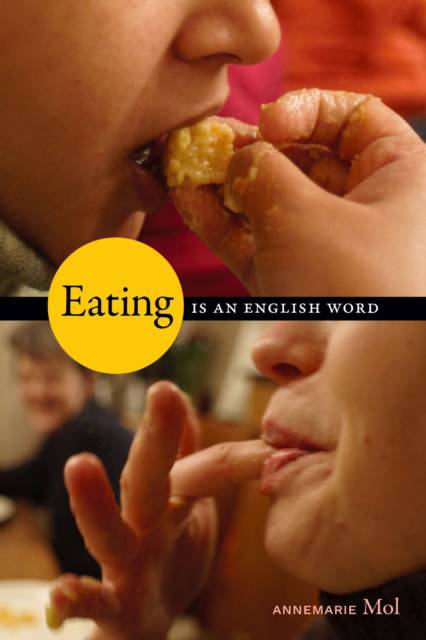
Bedankt voor het vertrouwen het afgelopen jaar! Om jou te bedanken bieden we GRATIS verzending (in België) aan op alles gedurende de hele maand januari.
- Afhalen na 1 uur in een winkel met voorraad
- In januari gratis thuislevering in België
- Ruim aanbod met 7 miljoen producten
Bedankt voor het vertrouwen het afgelopen jaar! Om jou te bedanken bieden we GRATIS verzending (in België) aan op alles gedurende de hele maand januari.
- Afhalen na 1 uur in een winkel met voorraad
- In januari gratis thuislevering in België
- Ruim aanbod met 7 miljoen producten
Zoeken
Omschrijving
Eating is generally understood as a human need that people satisfy in diverse ways. Eating, however, is also an English word. Other languages, using other words, order reality differently: they may fuse eating with breathing, or distinguish chupar from comer. Anthropologists flag such differences by leaving a few of their words untranslated, but what language do we think in? This isn't necessarily English. We may be linguistically closer to those whose practices we study: them. Against this background, Eating Is an English Word argues that social scientists should let go of the dream of universal concepts. Our analytical terms had better vary. Annemarie Mol and her coauthors exemplify this in a series of material semiotic inquiries into eating practices. They employ terms like lekker, tasting with fingers, chupar, schmecka, gustar, and settling on an okay meal to explore appreciative modes of valuing. Welcome, then, to spirited stories about satisfied stomachs, love for a lamb, juicy fruit treats, and companionable lunches and dinners.
Specificaties
Betrokkenen
- Auteur(s):
- Uitgeverij:
Inhoud
- Aantal bladzijden:
- 200
- Taal:
- Engels
Eigenschappen
- Productcode (EAN):
- 9781478030867
- Verschijningsdatum:
- 4/10/2024
- Uitvoering:
- Paperback
- Formaat:
- Trade paperback (VS)
- Afmetingen:
- 152 mm x 226 mm
- Gewicht:
- 294 g

Alleen bij Standaard Boekhandel
+ 64 punten op je klantenkaart van Standaard Boekhandel
Beoordelingen
We publiceren alleen reviews die voldoen aan de voorwaarden voor reviews. Bekijk onze voorwaarden voor reviews.









